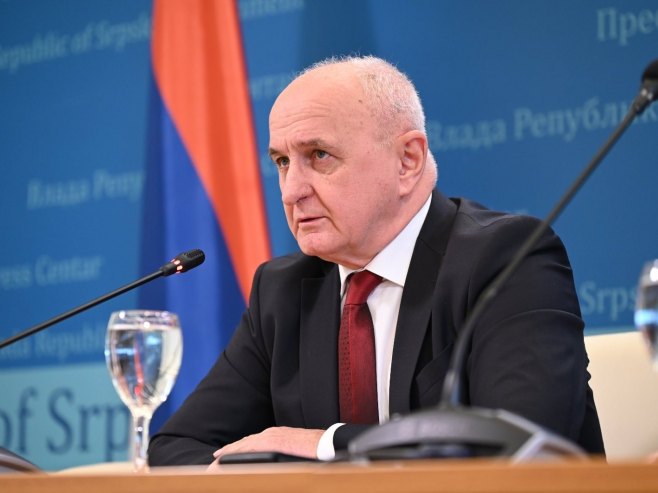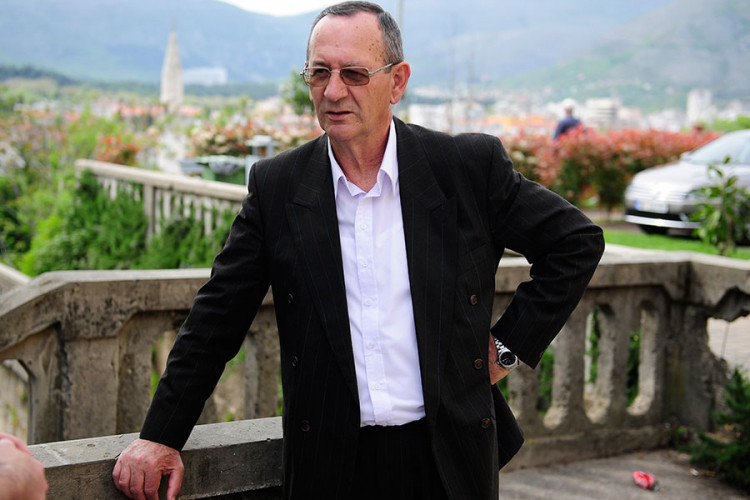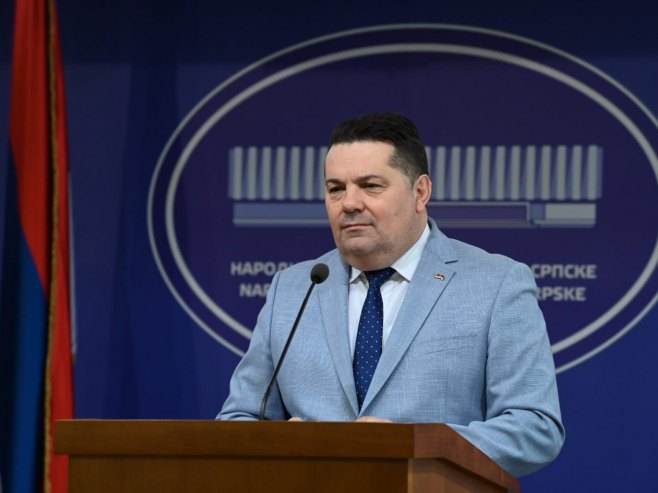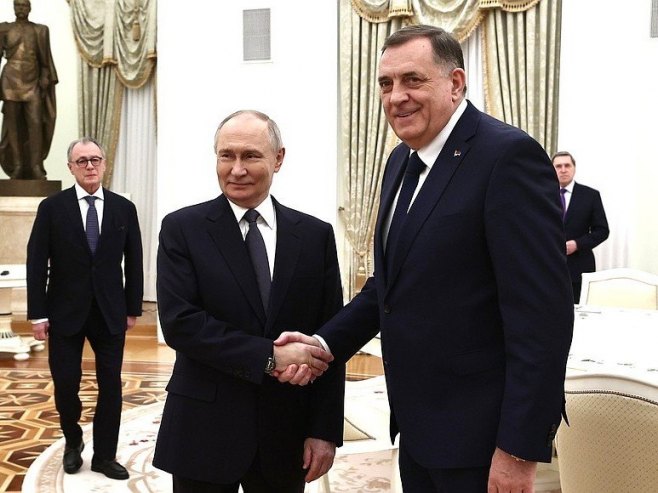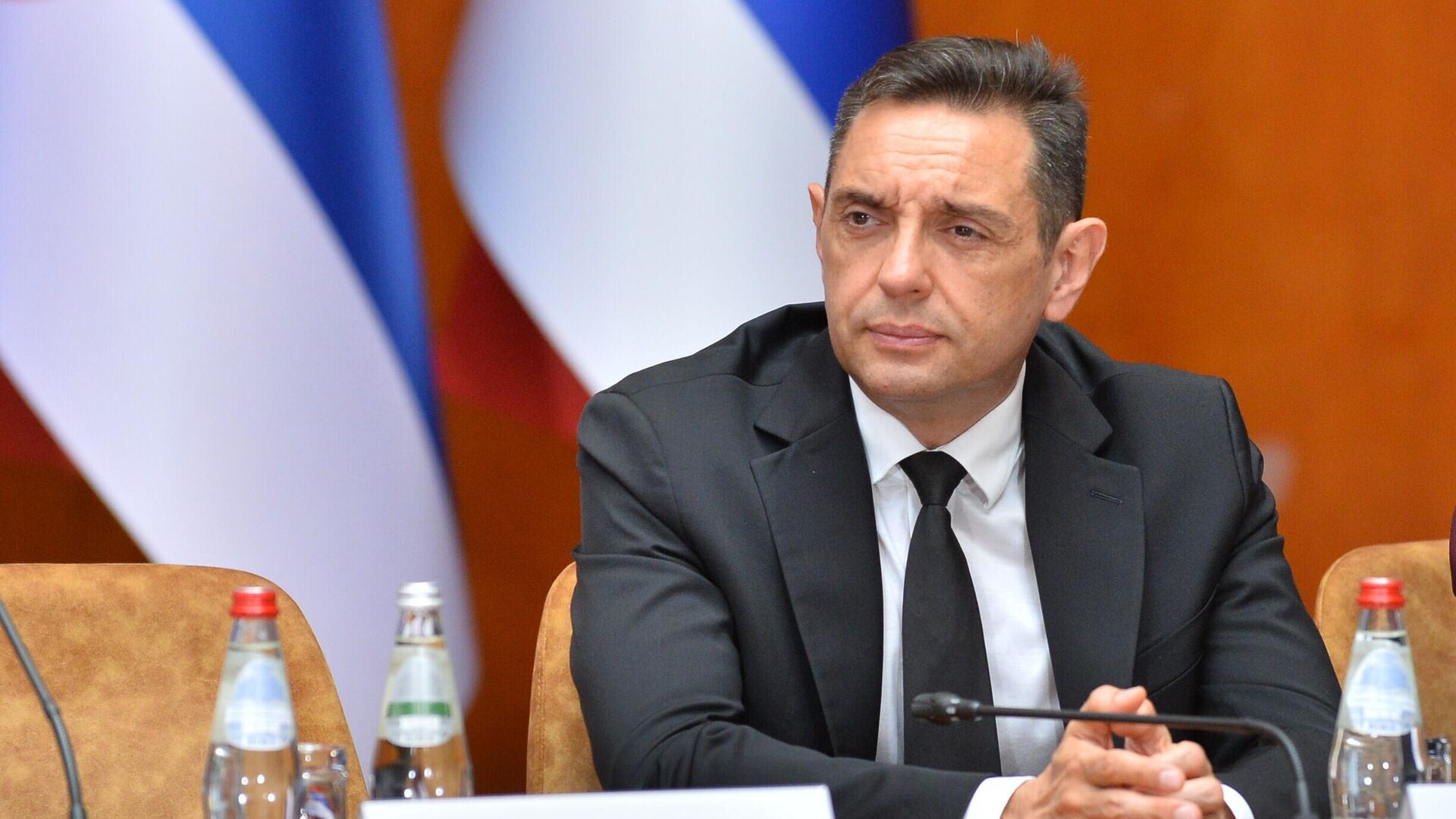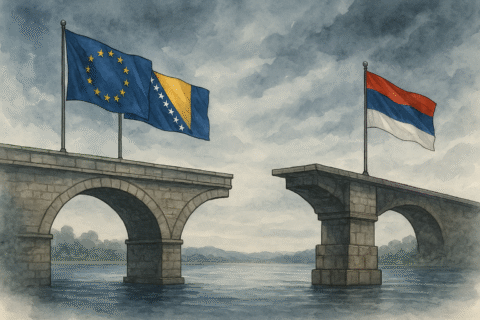The small number of Serbs living in Mostar today, about 3,000 of them, are enduring the same fate as the Serbs in Kosovo and Metohija, who are daily subjected to various forms of pressure aimed ultimately at ethnic cleansing.
This is what Dušan Golo, president of the Coordination of Serbs in Mostar, said in an interview for “Glas Srpske,” commenting on the recent incident in this city when children were attacked at a playground in the returnee Serb village of Baćevići, and the playground and village were covered with Ustaša symbols. Although the perpetrators of this attack have been identified, Golo emphasized that the residents of this village continue to live in great fear and uncertainty about what the next day might bring. He believes that there is almost no difference between the Serbs in Mostar and those in Kosovo and Metohija. In Kosovo and Metohija, as he points out, violence and terror are being openly carried out, while in Mostar, it is concealed and perfidious. He warned that if nothing is done, the result in the end will be the same.
GLAS: What exactly happened that day?
GOLO: It all started when a group of young men of Croatian nationality came to the village and the playground where our children play. They then covered the area around the memorial park dedicated to the victims of World War II and the civilians killed by the Ustaše with stickers bearing Ustaša symbols. Although the police were immediately informed about this, they did not react. Our children removed those stickers, after which this group returned late at night and attacked them with batons. If the parents had not come out to help, it could have been much worse. I believe this was organized to provoke religious and ethnic tensions, as well as fear among the residents of the Serb village of Baćevići. It is tragic that none of the representatives of the Croatian people reacted to this. None of them came to Baćevići to offer support to the frightened people. This says a lot.
GLAS: You say this attack was not spontaneous?
GOLO: Initially, we thought it was spontaneous provocation and attacks, childish mischief, but if we look at things a bit more broadly, we can conclude that it was all premeditated and organized. And that is what is most frightening. We took this very seriously.
GLAS: If I understand you correctly, there have been similar incidents before. Did you report them, and how did the police handle them?
GOLO: The police reacted this time only after public pressure. Initially, they tried to cover it up or present it in the wrong way. They said there were no Ustaša symbols, which is, of course, not true. I have photos taken by my grandson. In Baćevići, there is the only monument dedicated to the victims of Ustaša crimes in World War II. And then someone comes and places Ustaša symbols and swastikas. What is that but a conscious and planned provocation? This incident showed the upbringing of those who did it, but also the Serbian children who removed the stickers. The greatest tragedy is that the attackers were young people, obviously filled with religious hatred. I can’t wrap my head around it, especially after so many years since the war. It’s a catastrophe!
GLAS: What are the authorities doing about this issue?
GOLO: Nothing. They relativize everything, although the problem has been present for years. They even tried to accuse the man who reported the attack on his child. The initial statement was that two groups of young men fought and that the children had fought before. That is the consequence, but what about the causes? No one is dealing with them. Messages of support and condemnation are not enough.
GLAS: What other problems are you facing?
GOLO: We cannot exercise any rights, not even the right to work, even though we are constitutionally recognized as a constituent people in the Federation of BiH. We are citizens of so-called second-class status. I recently told one of the Serbian officials how much Serbian land is in this area. He was surprised. I told him that this is probably one of the reasons for the attacks on our children. So what are we going to do now? Will we give up that property or defend it institutionally? Everything is heading toward continuing the ethnic cleansing that began in 1992. If nothing is done, these areas will eventually be left without Serbs. There won’t be a new “Operation Storm,” but there is a breeze that blows every day. It is often invisible to the naked eye, but we feel it on our skin. And because of that, I am not optimistic about the survival of around 3,000 Serbs in a divided city like Mostar, where the two sides remain entrenched in the trenches dug in the 1990s.
GLAS: Can the authorities of Srpska and Serbia help, and how?
GOLO: We need their open support here. The Declaration was recently adopted at the All-Serbian Assembly. It should not remain a dead letter on paper. I will ask Serbia to open a state office for Serbs in the region. It’s not the same being a Serb in Paris or Berlin and, for example, in Mostar, where the Serb people face problems that threaten their survival in this area. There used to be 35,000 Serbs in Mostar, today less than ten percent of that number, and many of them do not dare to say they are Serbs. They are afraid.
Source: Glas Srpske

